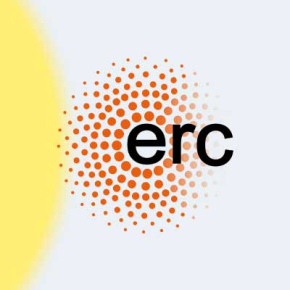The CNRS is hosting 6 ERC 'Proof of Concept' 2025 grantees
Half of the 12 French grant-winners in the European Research Council's (ERC) 'Proof of Concept' first call for 2025 come from the CNRS.
This year, the European Research Council (ERC) has selected 150 candidate projects submitted for the Horizon Europe framework programme's 'Proof of Concept' call. This includes 12 in France and six for which CNRS is the host organisation.
This call is for scientists who were awarded an ERC Starting, Consolidator, Advanced or Synergy grant less than a year earlier and now wish to exploit the results of their research, develop their innovation potential and foster closer links with the market. These grants are worth a maximum of €150,000 over up to 18 months and are intended to support the commercial and societal potential of previous ERC grant-winning projects.
A second call for 2025 is open until 18 September, the two calls adding up to a €45 million budget.
In 2025, six grant-winners are hosted by the CNRS:
- Prince Amaniampong, from Institut de chimie des milieux et matériaux de Poitiers (CNRS/Université de Poitiers), for the CAVICLEAN project: “Catalytic Cavitation Membrane Agents for Ultrasound-Assisted PFAS Elimination and Wastewater Purification”
- Brice Bathellier, from Institut de l'audition (CNRS/Inserm/Institut Pasteur), for the BRAINCODER project: “High-resolution auditory restoration by a brain implant operated with a bio-mimetic deep encoder”
- Hugo Bisio Sabaris, from the laboratory Information génomique et structurale (CNRS/Aix-Marseille Université), for the PSDisrupt project: “AI-driven discovery broad-spectrum antivirals targeting Nucleocytoviricota factories via phase separation modulation”
- Daniel Brunner, from the FEMTO-ST institute (CNRS/Supmicrotech ENSMM/Université Marie et Louis Pasteur/Université de technologie de Belfort-Montbéliard), for the FAMEPIC project: “Fast Additive Manufacturing for Enhanced Photonic Integrated Circuits”
- Valentina Emiliani, from Institut de la vision (CNRS/Inserm/Sorbonne Université), for the 2P-MINOPS project: “Two-photon miniaturized integrated neuro-optical photon system for neuronal circuits investigation in freely moving primates”
- Leïla Perié, from the laboratory Physique des cellules et cancer (CNRS/Institut Curie/Sorbonne Université), for the VisioWell project: “A high-throughput imaging device for non-adherent cells”
